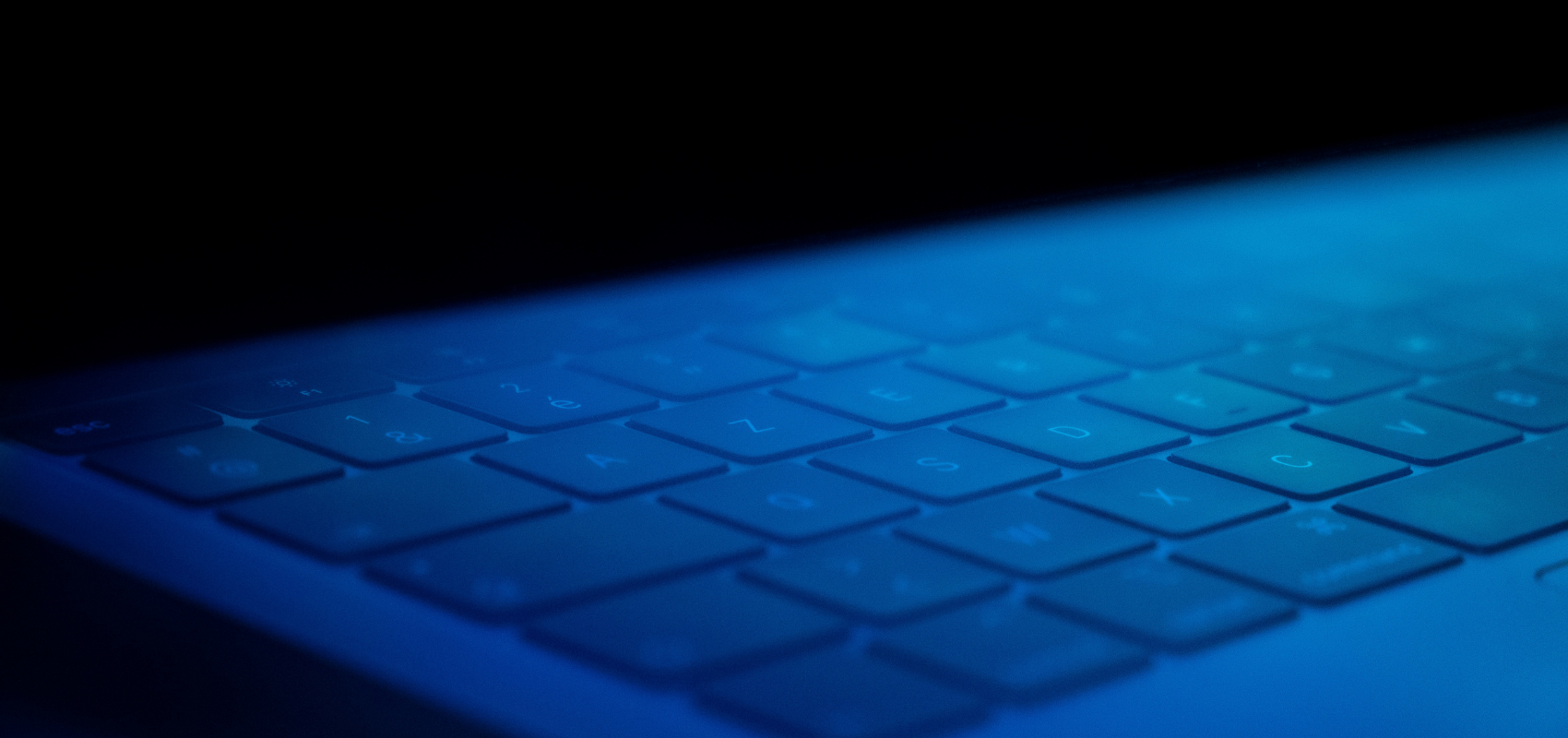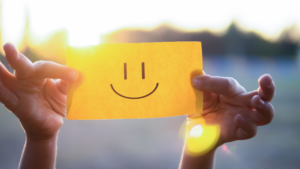From gluten to red dye 40, there are a lot of warnings out there regarding things to avoid for our health. Honestly, trying to keep track of it all makes me feel like Jake Gyllenhaal Bubble Boy, only without the back issues of Highlights to enjoy. (Remember those?! Good times.)
One topic I keep seeing everywhere lately is blue light. With so much of our lives being lived online right now, is it really something to worry about?
What Is Blue Light?
Blue light is one type of wavelength or ray that’s naturally emitted from the sun (along with red, orange, yellow and green) and electronically from our smartphones, tablets and computers. It’s stronger than other wavelengths and is also called HEV light, which stands for High Energy Visible light. Blue light is something we’re exposed to on a daily basis, which is why it’s helpful to know how it affects us.
What Does Blue Light Do?
Just like taxes and avocados spoiling the second you decide to use them (it’s like they know), blue light is hard to avoid. When it comes to wellness, the three areas most commonly examined when it comes to blue light are:
- Skin Health — Blue light can be used in small doses to help with conditions like acne, but long term exposure isn’t advised. Similar to UVA and UVB rays, blue light can cause pigmentation as well as wrinkles and sagging skin. How? Blue light penetrates deeply into the skin — it can even go deeper than UV rays — causing oxidative stress which can break down collagen and elastin. Yes, watching hours of skin care and beauty tutorials may actually be having the opposite effect on our complexions. Can’t a woman catch a break?!
- Sleep Cycles — Exposing ourselves to blue light at nighttime can interfere with our sleep by throwing off our circadian rhythm, which is like our internal clock. It does this by inhibiting the secretion of melatonin, the hormone that helps us fall asleep and stay asleep when it’s dark. This is why you may be yawning when you get into bed, but after a scrolling session you feel wide awake. Save your double taps for daytime.
- Eye Health — The jury is still out on the impact of blue light on the long term health of our eyes. At this time, there’s no conclusive evidence exposure to blue light from electronics damages the retinas or any other part of the eye. However, staring into very bright sources (like fluorescent lights or the sun) is never recommended. When you use your devices for a long time and notice discomfort, it’s the result of eye strain from less blinking.
What Can We Do?
OK, so you want to limit the impact of blue light. Here are some ways to start:
- Avoid looking at your phone two hours before bed.
- Take breaks from your screens throughout the day to rest your eyes.
- Apply sunscreen every day, whether you’re inside or out. And reapply as directed.
- Use a vitamin C or other antioxidant serum to further protect your skin from oxidative stress.
- Make sure you’re getting enough exposure to natural light during the day to help you fall asleep at night.
- Use shields on your devices to block out blue light.
- Blue light blocking glasses are also available. But again, the science still isn’t conclusive on any guaranteed benefits.
The moral of the story here is blue light is something to be mindful of, but exposure to it is pretty unavoidable. However, trying to reduce our screen time is never a bad thing.
Are you concerned about blue light? Have a great sunscreen you love? Let me know in the comments.
Note: Some of the items in this blog include Amazon Affiliate and other links which earn a small commission.




